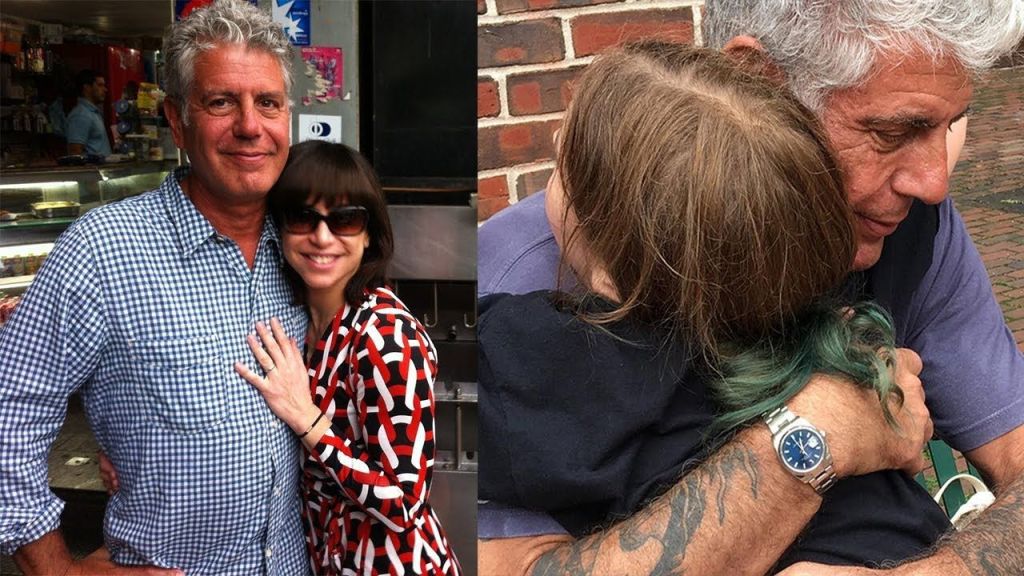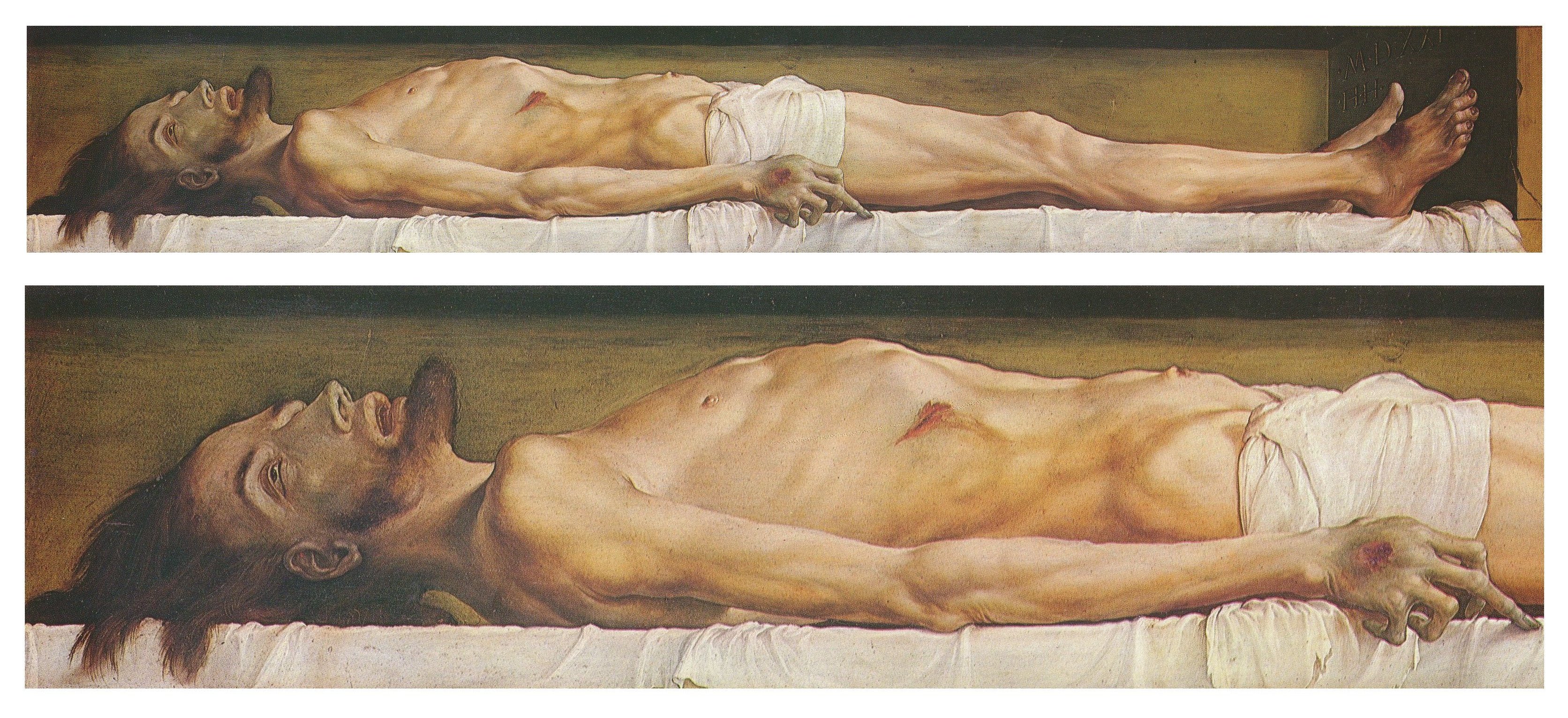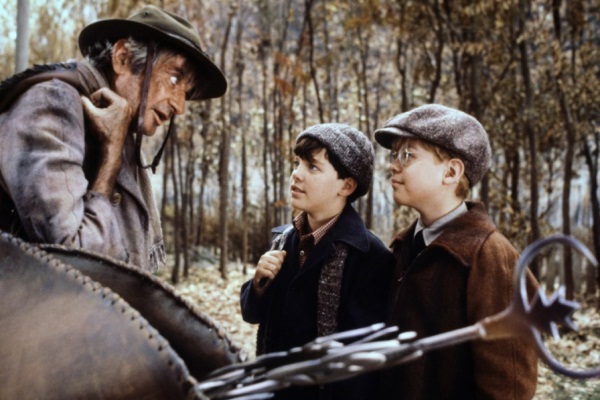Last Sunday night I was able to catch a documentary film I’ve been eagerly wanting to watch for awhile, Roadrunner: A Film About Anthony Bourdain by Morgan Neville. Like most of his fans I couldn’t get enough of the diverse places, people, cultures and cuisine he’d show and share with us in his prolific storytelling way. Not knowing the intimate minutia which offers some understanding and closure of “Why” gnawed at me ever since June 8th, 2018.
His suicide was terribly sad for me as much as it was to his dearest friends and family. As some of you know, I am a survivor of my Dad’s suicide, so this was especially heart-wrenching. I identified with Anthony Bourdain and his passion for human cultures foreign to his and my own. Now he identified with me in an all-together new, painful way. He had left behind a young daughter with no explanation, no answers. How could this happen? Why do that to your own little girl? The following day I had as many questions as any of his fans. Bourdain was not simply well-known from No Reservations and Parts Unknown, but for many in his personal circles on an intimate level he was an enigma and seemingly more unknown.
Check that. That is, unknown to those with no knowledge or awareness of Manic Depressive Disorder and mental-illness. Did you know that Anthony Bourdain was a heroine addict until just months before he became a New York restaurant line-cook and eventually Executive Chef at Brasserie Les Halles in Manhattan?
∼ ∼ ∼ § ∼ ∼ ∼
One of my favorite lines describing the paradox of human existence and its sometimes absurd events in which we find ourselves, comes from one of my most endearing movies. On film, as it is in life, the bewilderment can invoke our highest joys, our lowest despairs, and then when the ride ends inexplicably give either little solace or an enormous epiphany. The line comes from the 1990 film Dances With Wolves where John Dunbar is utterly perplexed by the outcome of his attempted death at the hands and gun barrels of his Confederate enemies. He writes in his journal:
“The strangeness of this life can not be measured. In trying to produce my own death, I was elevated to the status of living hero.”
John J. Dunbar – Dances with wolves
Anthony Bourdain’s rise to food & travel hero was not unlike 1st Lt. Dunbar’s trajectory to Civil War hero—with the exception that both men arranged very divergent epilogues.
As I listened to each interview from Anthony’s closest colleagues, dear friends, acquaintances, ex-wives, family, and clips with his last girlfriend… the signs and bells showed themselves. The mental warning flags were waving as plain as day to me—internally Bourdain was in a desperate struggle. Also obvious was his one single coping-mechanism for a self-perceived unwinnable strain or torment. It was as one colleague aptly described, “Tony was always rushing. Rushing to enter a scene. Rushing to exit to the next scene.” Three symptoms of Manic Depressive Disorder are in fact 1) unusually increased activity, energy or agitation, 2) racing thoughts, and 3) abnormally upbeat, jumpy or wired behavior. One of his close director-producers remarked, “Tony was usually quite restless.” In his own words repeated many times in various forms:
“If I’m an advocate for anything, it’s to move. As far as you can, as much as you can. Across the ocean, or simply across the river. Walk in someone else’s shoes or at least eat their food. It’s a plus for everybody.”
anthony bourdain
Like many, I thoroughly enjoyed Bourdain’s travels from continent to continent finding and visiting his favorite acclaimed chef’s while unabashedly finding the remote hole-in-the-wall grills, street-venders and pubs. His wit and candor, then compassion one day and blunt smart-ass another is certainly what made his shows unique and appealing to me and his audience. I often thought, “This is the type of travel companion I would want exploring the world eating, drinking, dancing, and laughing until I could no more.” He’d be the best of friends and the worst of friends; hopefully more the former than the latter, right?
It is apparent in his interactions with native fellow diners Anthony’s dark side would surface. His camera-crew, directors, and producers also knew this. One of Bourdain’s own top three films of all-time was Apocalypse Now. His two favorite characters in the movie Capt. Willard (Martin Sheen) and Colonel Kurtz (Marlon Brando). For those of us who closely watched Bourdain and more closely listened to him, this comes as no surprise. In the movie while on their disturbing personal journeys, both characters—like Bourdain’s restless soul—Willard and Kurtz come to realize how abnormal and bizarre life can impact us, mark us, and change all of us whether we embrace the experience for its reality or not.
“Without experimentation, a willingness to ask questions and try new things, we shall surely become static, repetitive, and moribund.”
anthony bourdain
Spoken like a true, emboldened always restless explorer. From my years employed in the Psych/A&D field, this was a veiled invitation to not take his words at face value. The last word was a dead giveaway. Addiction, with accompanying disorders and left unaddressed and untreated, will not disappear. They only go dormant until triggered again. Though Anthony Bourdain quit his heroin addiction cold-turkey on his own early in his career, locking it up in the proverbial back closet or basement doesn’t make it disappear. As his dearest friend and artist David Choe correctly described, “Tony’s addiction only jumped.” It merely morphed into restless workaholism then incessant perfectionism.
It can be easily said Anthony Bourdain reached the top of the world when he met, fell in love, had a daughter (Ariane) and married Ottavia Busia in 2007. It was unmistakable Anthony was overly happy. He had found a stable, normal foundation he often thought alluded him. He became more grounded and less “rushing” or constantly semi-frantic. The smaller things in life now mattered much more. He even found great joy grilling hamburgers, sausage, and hotdogs in their backyard next to the swimming pool with only Ottavia and Ariane around.
Sadly, by 2015, just eight years later, this fulfilling, steady base which Ottavia and her family lovingly provided, balancing Anthony so well… was no longer enough. Adventure-seeking’s addiction had been gaining more and more head-space and hormones in Tony. Woah! Hello! Big yellow-flag waving again to be noticed!
Anthony had several good friends that were musicians. One of his closest was Josh Homme of Queens Of the Stone Age. In one of their clips together from Roadrunner, Josh and Anthony are sharing years earlier the non-stop travel and touring they do and how it effects them and exhausts them and their families. In this scene Homme shares a poignant pearl of wisdom with Bourdain: “You love it when you’re home and you love it when you leave home.” Bourdain could only pause, stare thunderstruck, nod, and remain silent. It hit home, hard; pun absolutely intended.
Another gut-punch scene for Anthony was his meal with Iggy Pop. In fact, the interview with Iggy was extraordinarily telling about where Anthony’s head, heart, and addiction were at the time. He asked Iggy, “What thrills you?” Iggy answers his question…
“This is very embarrassing, but being loved, and actually appreciating the people that are freely giving that to me.”
iggy pop
Bourdain’s face said it all when Iggy finished; he hadn’t experienced love anywhere close to that magnitude. Or at least Anthony thought he had never experienced it before. His blank stare at Iggy was telling as if Anthony had just been stripped of all his clothing and well constructed walls torn down. The 5-second, slow-motion, silent void was palpable. I could see in Tony’s eyes the deep disappointment poorly hidden behind his face. Once again, bright yellow-flag waving, begging to be seen by some rescuer!
∼ ∼ ∼ § ∼ ∼ ∼
There’s no doubt that Anthony Bourdain touched many people’s lives. He touched them in lots of ways, mine included. But perhaps the most frequent touch was identifying with those strangers compassionately, supportively by first listening acutely, then acknowledging in Anthony’s intuitive, eloquent response… he got it. He walked in their shoes even if it was only for an hour or two. As his two mega-hit shows portray time after time, strangers loved him for that. It was his nature to know what question was best to ask, then he asked another just as probing, precise and genuinely curious, yet getting deep into their story, their core. I identified fondly with Anthony’s non-assuming gift for the marrow of people’s story over food and drink. Bourdain was an incredible explorer and storyteller even Marco Polo or Charles Dickens would envy!
There are many good and not-so-good reviews of Roadrunner, but being a huge fan of Anthony Bourdain for years and avid watcher of No Reservations and Parts Unknown, two of a few critical reviews I think are most accurate and grasp the entire intended content of Neville’s documentary. First is Alissa Wilkinson’s of Vox Media. She states it’s thorny, a bit uncomfortable due to the mental-illness never addressed by Bourdain or his closest friends. The other review is by Owen Gleiberman of Variety Magazine. But Wilkinson says (emphasis mine):
“So, it’s a gutting film. It’s unsettling in spots. It doesn’t offer answers, or at least not answers that make things better. The end of Bourdain’s life doesn’t have a single meaning, a neat takeaway. The messiness of existence is the point.
And that, Roadrunner suggests, is where Bourdain’s cultural significance lies. He loved food, loved people, loved travel and adventure. He could be brusque and loving, tender and tough, brilliant and baffling. He was a person worth making a biographical documentary about. In resisting the urge to paint its subject as a saint, Roadrunner gives us something better: a human.”
Alissa wilkinson, vox media, https://www.vox.com/22573903/roadrunner-anthony-bourdain-review
The other review is by Owen Gleiberman, writing for Variety Magazine, and it describes in-depth Anthony Bourdain’s documentary film in more powerful terms:
“[Roadrunner is] an intimate and fascinating portrait of the beloved celebrity chef and television globe-trotter” and “a spiritual investigation into why [Bourdain’s] life ended”.
Owen Gleiberman, variety

But there’s no denying that Bourdain’s dark side and later obsession with death and dying were just as prominent as his gift in living life to its fullest. Gleiberman concludes quite correctly in the same piece, “Bourdain’s death was a tragedy, but Roadrunner suggests it was a tragedy with a touch of destiny.”
Over the years of watching Anthony Bourdain’s shows, I began to notice his words and self-taught wisdom was increasingly contradicting his off-camera behavior. Yes, we’re all given a margin of error, a sort of grace period accumulation for what we say and do. This is good, this is necessary. However, what if forms of mental-illness and addiction are mixed into one’s life? Behavioral patterns and pathology we can’t see for ourselves or the dark path they lead us down? What then?
“I learned a long time ago that trying to micromanage the perfect vacation is always a disaster. That leads to terrible times.”
anthony bourdain
In the last year and months of his life, Anthony could no longer recognize or self-correct his own micromanaging despite what he said above! Another warning flag raised, this one red. “Terrible times” indeed. Eerie. Self-fulfilling.
If Anthony wasn’t himself recognizing his gradual descent, and lost while subtly reaching out, searching out some form of help, WHY did none of his closest friends, colleagues, or ex’s not see him spiraling deeper and deeper? Was it because like most all of Americans, and perhaps Europeans too, we shy away from mental-illness? In understanding mental-illness intimately, and by doing so will it uncover something(s) too painful, too shameful to admit, to rectify?
For Anthony Bourdain and all inside his inner-circle with the same boldness, courage, and ambition to see, to taste, smell, hear, and learn of so many cultures, to experience fully life’s bounties… I find this child-like fear about the serious reality of mental-illness and addiction to be absurdly ironic! I can’t emphasize enough their paradoxical condition by so many colleagues and friends that loved(?) Anthony! It doesn’t make sense. When someone has obviously become more and more recluse, more agoraphobic (of all glaring things!), something has to be done, especially with the background history Anthony Bourdain openly and bravely shared with the world freely! So how? How did so many friends, ex’s, kitchen-table colleagues, and extended family miss so many warning flags?
“When I die, I will decidedly not be regretting missed opportunities for a good time. My regrets will be more along the lines of a sad list of people hurt, people let down, assets wasted, and advantages squandered.”
anthony bourdain
That painful opportunity missed by his closest friends and work colleagues to help stop Anthony not go out dead like Jeff Heston (Charles Bronson) in the 1970 Italian film, Violent City, will be what haunts the friends and colleagues dearest to him. In one short scene of Roadrunner, Courtney Sexton (I believe?), the CNN executive producer who for years worked with Bourdain, states quite assuredly that ‘we’ll never fully understand why Anthony took his own life.’ No! I could not disagree more vehemently with Sexton. You, Courtney Sexton were part of the tragedy, the fear and ignorance that let Bourdain slip down more and more into his bottomless hole each month, each year.
All the signs, alarms, and warning flags were there, plain as day. And it doesn’t take a 30-year experienced psychiatrist to see them. Some key facts and information easily learned about psychology and addiction, coupled inside continuing mental-illness awareness most likely would’ve saved Bourdain from the black-hole he was falling into. Of this, I am convinced had just one or two of his dearest friends been adequately educated with mental-health/illness. No one needs a Ph.D. or Masters in the field to help someone get professional help. It is literally as easy as boiling an egg or brewing coffee.
“You’re probably going to find out about this anyway, so here’s a little preëmptive truth-telling,” Bourdain says, in disembodied voice-over, in the [Roadrunner] movie’s first few minutes. “There’s no happy ending.”
helen rosner – the new yorker, july 15, 2021 at https://www.newyorker.com/culture/annals-of-gastronomy/the-haunting-afterlife-of-anthony-bourdain
Mental-health & Crisis Suicide Resources
My mother and I are and have been NIMH members since 1992. Their website and resources are a good place to start your extended education about mental-health and illness as well as removing the national stigma surrounding mental-illness. Click on the NIMH link to learn more. Mental-illness is as common in society and all families as regular disagreements or bad kitchen recipes, I assure you. There’s no justifiable reason to avoid it. Please suspend any fears or insecurities and find out how to save a life!
Inside the U.S. there is a hotline by the National Suicide Prevention Lifeline or at 1-800-273-8255. Help is available 24/7, 365 days a year.
If you live outside the United States and need support/help concerning mental-illness and/or crisis-suicide prevention, here’s a webpage listing organizations, websites, and phone numbers by country: Crisis Information, Help & Support.

This work is licensed under a Creative Commons Attribution-NonCommercial 4.0 International License.
Permissions beyond the scope of this license may be available at https://professortaboo.com/contact-me/.





 I stumbled across a business magazine article last week about a very well-known, fascinating trait we humans possess: worth-seeking. The article was
I stumbled across a business magazine article last week about a very well-known, fascinating trait we humans possess: worth-seeking. The article was 









